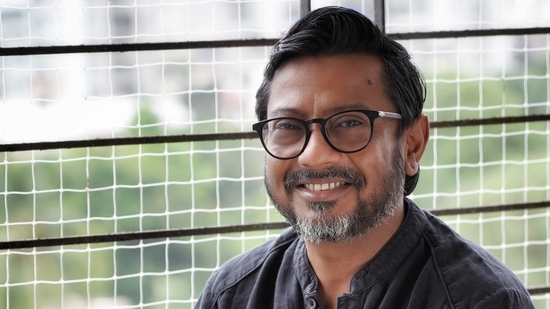Onir on representation of queer community in popular cinema: When we are mocked, it's not only our loss but…
Onir discusses We Are Faheem And Karun's international premiere at BFI Flare 2025, misrepresentation of queer community in popular cinema and bias against them
Onir’s film We Are Faheem and Karun is set to have its international premiere at the BFI Flare 2025, a queer film festival, this month, and the filmmaker admits that this feat is a bit more special for him. “This is the first time that a project is entirely produced by me and directed by me. It is a passion project, and I am proud that the story is set in Kashmir, with Kashmiri actors and they are coming with me to the BFI for screening,” Onir says.

The story of We Are Faheem and Karun is set in Kashmir, marking it the first queer story set in the state. Ask him why he chose Kashmir as the setting for the film and he says, “For me, there were two aspects, first that it was inspired by a true story and secondly, I feel it is exciting for me to take the narrative to a place where there is absolute silence and invisibility.”
Taking the example of the Marathi film Sabar Bonda that won at Sundance 2025, and is set in rural Maharashtra, Onir shares why he thinks the setting in Kashmir plays a huge role. “Everyone in the Parliament has this very bizarre argument that LGBTQIA+ is an urban phenomena. So, it was important for me to shift the narrative from urban spaces to an extremely remote area because queerness doesn’t depend on area or which religion you belong to. This is a film which addresses queerness from various levels as it’s a story between a Kashmiri local and a guy from Kerala, so it’s across religion too. Queerness is not anyway accepted in various places, so when one battles all these barriers that the heteronormative society is setting up, and we still find love, we overcome these barriers much more easily,” he says.
While the representation of the LGBTQIA+ community has increased in popular cinema, Onir feels that majority of these projects take the community a step back. He even draws parallel to another community. “All the beautiful films that were celebrated at film festivals last year including All We Imagine As Light and Laapataa Ladies, all were helmed by women, telling stories of women, but these are the films which people don’t see, and then you have an Animal, which is a ‘commercial’ film. We are in that same space in queer cinema. Just like how we constantly talk about the need of more women filmmakers to talk about their stories, similarly we need more queer voices to tell our stories,” he states, adding, “Popular cinema follows majority’s point of view, be it about religion or sexuality or anything, sometimes those films become huge successes and that’s a huge step back for the entire society. I increasingly feel that when queer community is mocked or misrepresented, it’s not only our loss but also for the heteronormative community which does not take a step towards becoming a better society.”
Being an openly gay filmmaker, Onir admits that the misrepresentation of queer community in cinema is a reflection of the real world. “Even after so many years of being out, I had recently someone say to me that 'Onir, to be honest, you don't come across as gay.’ What does that mean? I was at a film screening recently where the moderator said, ‘oh you are a gay’. I asked myself, who says that to anyone like ‘you are a straight’. There is so much of insensitivity that one encounters every day. Sometimes it gets exhausting and sometimes, I tell myself that I'm superior,” he quips.
He even laments the condition of the film industry: “Over the last few years, we have become a selfish industry. When I made I Am and it got a National Award, everyone came to celebrate. Today, people feel apprehensive of calling someone to their screenings or giving screeners prior, because of the importance they put on social media. Everything has become a transaction, and as an independent filmmaker, it becomes difficult,” he ends.






